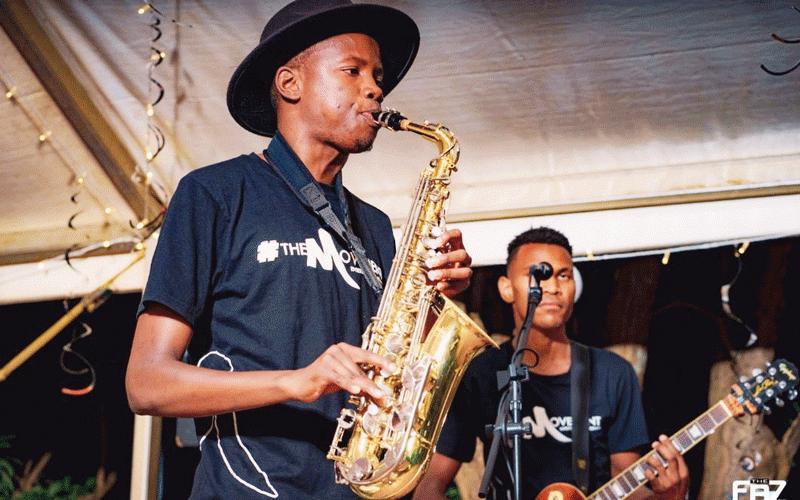Africa-Press – Zimbabwe. SIR Arundel, real name Panashe Arundel Matoi, who enchants the audience and teaches saxophone, accordingly has been given several media reviews as “Sir Arundel the Prince of Horns”.
The title Sir Arundel then becomes convenient as he resuscitates African traditional and Western melodies in class and when hired as a performer. An admirer of global saxophonists such as Kenny Garreth, Dextor Gordon, Moses Khumalo, Joseph Chinouriri and Denilson Musekiwa, among plenty others, Matoi is driven by passion and nature and has built a name for himself and become the favourite for bands, session musicians and DJs. He backed his talent with a diploma in music he studied at the Music Crossroads Academy in Zimbabwe.
“I usually do not sing with my natural voice. Instead, I blow all the beautiful melodies on the saxophone. Over the years of being hired as a performer and teacher of the saxophone, I have also mastered the art of playing several brass and woodwind instruments. I have, by the grace of God, managed to balance the two professions well,” he told NewsDay Life & Style.
“Brass instruments are usually given little sections in music arrangements to sing the melody or provide a rarely thought about harmony. In my music performances, the brass lifts the music and all melodies are sung through the saxophone.
“I often work with a four-piece band which has Liberty Saizi (keyboards), Cole Rusike (drums), Naison Banda (bass) and I on saxophone,” Matoi said.
He said brass instruments were still hard to find in Zimbabwe and as the number of music colleges increases, there is room for more business as a teacher. He encourages parents to support their children’s talents by buying them music equipment, including brass instruments.
“In every child’s heartbeat lies a rhythm waiting to be heard. When we invest in their talent, when we place a saxophone in their hands or a trumpet to their lips, we do more than buy an instrument. We awaken a future. Zimbabwe is rising musically, yet brass instruments remain scarce, like keys locked in forgotten chests.
“I, Sir Arundel, feel I am right, music colleges are multiplying, students are eager, and teachers will be needed more than ever. There is business here, yes, but more importantly, there is legacy. Parents, if your child shows interest in music, don’t wait for the world to hand them a chance. Be the first to believe. Buy the trumpet. Find the saxophone. Invest in their sound and you invest in their future, in your nation’s next note. Let them play. Let them soar,” he said.
Outside Sir Arundel’s music, military and police bands have popularised wind music instruments and are frequently mentioned by teachers as inspirational examples of music making. The saxophone, when well played, automatically becomes a replacement for the human voice. It also follows that its ability to switch and transpose to many octaves fills the gap where words cannot fully express.
As he continues to mentor students and expand his performing career, Sir Arundel remains an ambassador for musical evolution. “We must let our children blow freely,” he laughs. “The world will hear Zimbabwe through their horns.”
And with that, the Prince of Horns lifts his saxophone again — not just to perform, but to declare that the brass renaissance is coming.
For More News And Analysis About Zimbabwe Follow Africa-Press






